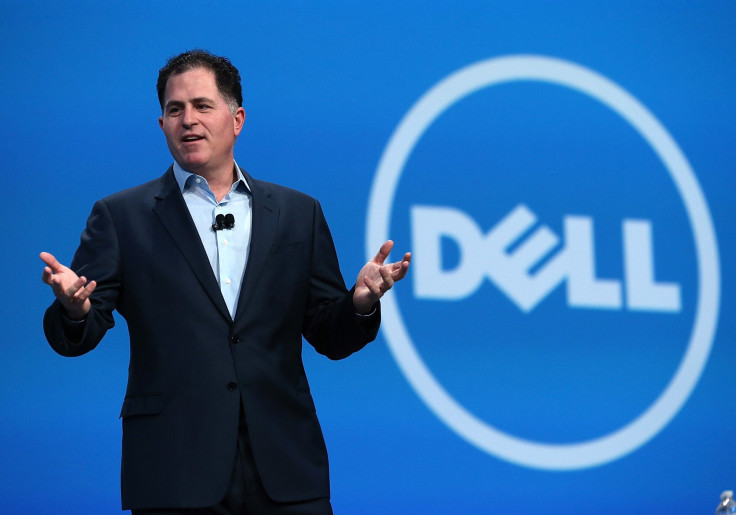Michael Dell: My 'Little Startup' Has Generated Almost $1 Trillion In Revenue

DUBLIN -- In his first public appearance since sealing the biggest merger in tech history, Michael Dell admitted his company's $67 billion deal to acquire EMC is a risk -- but one he's embracing -- and noted his "little startup" is about to pass the $1 trillion mark for revenue.
Speaking at the Web Summit conference in Dublin on Tuesday, the entrepreneur was asked if the deal will be a success. “[The] reality is we can’t be sure, [but] that’s how markets are made," Dell said, adding that he is "happy to take on the risk and perfectly happy to take on a path that is different from others. I have been living my whole life that way.”
Earlier this month Dell announced it would pay $67 billion to buy data storage company EMC in a cash-and-stock deal that will be the largest ever in the technology industry. The deal will see Dell become a hugely powerful player in the corporate information technology space, allowing it to leverage EMC's expertise in data storage with its No. 2 position in servers globally.
On stage in Dublin, Dell said the reaction to the deal from customers was "overwhelmingly positive," and he called EMC “a really incredible company that is absolutely a leader in today’s IT — servers, storage, virtualization — and it created a company that is a leader in tomorrow’s IT." The latter was a reference to EMC's VMware unit, which specializes in cloud computing.
Dell famously founded his company while a student at University of Texas and he highlighted just how far that "little startup" has gone in the the 30 years since it started out. “I started this adventure in my dorm room with $1,000 and so far it’s going pretty well. My little startup has had revenues of more than $900 billion since we started so we are going to have a $1 trillion fairly soon,” Dell said.
The company was taken private two years ago, and Dell said that has allowed him to change the way it operates, no longer focusing on the "90-day shot clock" that public companies often have to adhere to. "It's been great for me. Our freedom of operation and being able to invest in our business has allowed us to change our time horizon thinking out to three, five, 10 years," Dell said.
Dell's merger with EMC goes against the prevailing trend in tech at the moment with companies looking to separate out different businesses such as eBay's spinning off of PayPal and HP's split this week into Hewlett Packard Enterprise and HP Inc.
“I am not afraid of risk," Dell said. "I think risk goes along with innovation. One of the problems that larger companies have from the perspective of an entrepreneur is that they think of risk as something to move away from.”
The PC business has been in decline for a number of years as the rise of tablets and in particular smartphones have led to shrinking profits for companies including Dell. However the company's founder said that the PC business is still very important and will be around for many years to come.
"A few years ago there was this idea that the PC was going away, that the PC was going to be replaced by the smartphone. I think the reality is that we have multiple devices, so it is not an either/or; it is some combination of those," Dell said.
Dell called PCs a “great business” for the company, adding that of the 1.8 billion PCs in the world, one-third are at least four years old. “Our simple job is to create a PC that is better than the one that we sold you five years ago — and it’s actually not that hard.”
© Copyright IBTimes 2024. All rights reserved.






















